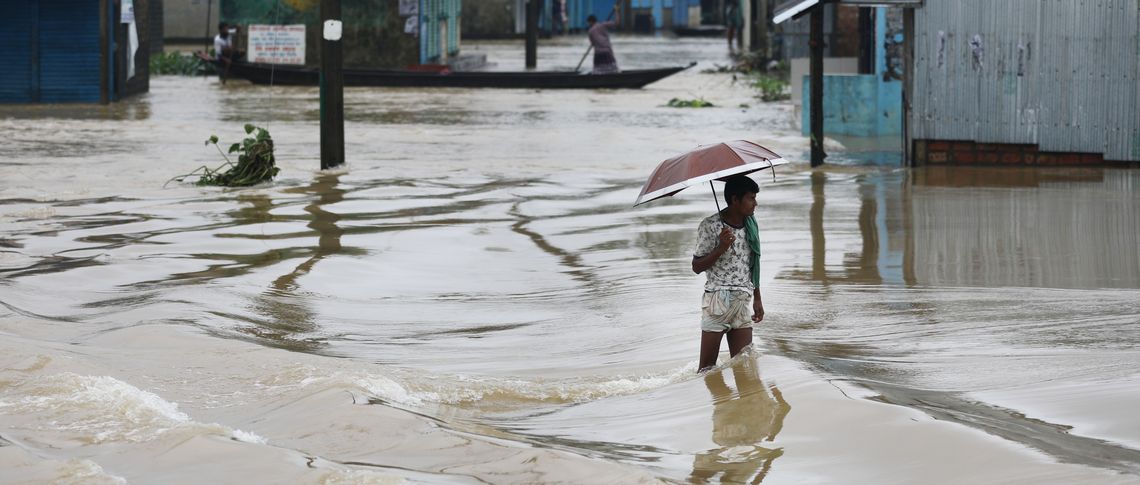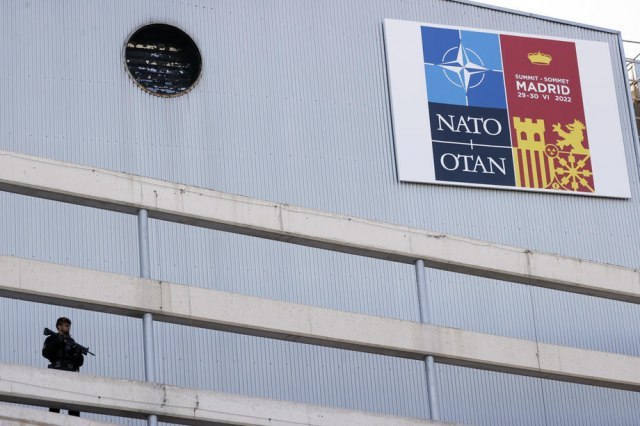
01.07.2022 | Anne Balzer
The first Conference of States Parties to the Treaty on the Prohibition of Nuclear Weapons (TPNW), which took place at the United Nations in Vienna from 20 to 23 June, was signal just at the right time: threats to use weapons of mass destruction are unacceptable. After the treaty was adopted at the United Nations in 2017, the first Conference of the States Parties was held a good year after its entry into force in January 2021, with 49 states parties and 34 states participating as observers. Among the observers were representatives of the German government, who emphasised for the first time that the conference was ‘seen as an important event in international disarmament diplomacy.’
The TPNW builds on existing norms, such as the ban on nuclear weapons testing and the Non-Proliferation and Disarmament Treaty (NPT). For the first time, the treaty comprehensively outlaws nuclear weapons because of their catastrophic humanitarian consequences and prohibits the use, development, testing, production, acquisition, possession, and stockpiling as well as the threat of use of nuclear weapons for member states.
Nuclear deterrence is an outdated technology from the last century, which even a bitterly poor state like North Korea could develop.
Russia’s war of aggression on Ukraine demonstrates clearly how necessary the stigmatisation of the threats of nuclear weapons really are. Suddenly, the international community and above all the Europeans are confronted with a long-forgotten threat: a confrontation between nuclear-armed Russia and the nuclear alliance of NATO, whose members support Ukraine. In the process, Russia’s President Putin is expanding on this by his implicit nuclear threats – ‘Whoever tries to stop us and threaten our country and our people should know that there will be consequences. Consequences like you have never seen in the West in their history’ – the concept of deterrence in a disturbing way. The reference to nuclear weapons is not only used in case of an existential threat, but to contain the room for manoeuvre of Ukraine’s supporters.
The Conference’s results
That’s why it is so crucial right now that states have united in a multilateral UN forum to raise their voices against nuclear weapons. Every step in the practical design of the TPNW strengthens the norm of the ban on nuclear weapons and undermines the practice of the nuclear-weapon states. The TPNW Conference of States makes it very clear once again: it is a political decision on which concepts states build their foreign and security policy. Nuclear deterrence is an outdated technology from the last century, which even a bitterly poor state like North Korea could develop. It offers no answer to the challenges of our time and is an additional risk in a multipolar world with accelerated communication and decision-making structures.
With regard to the accession of nuclear weapon states, existing arsenals must be destroyed within 10 years in a verifiable process.
The agenda for the conference, which lasted only three days and was chaired by the Austrian diplomat Alexander Kmentt, was understandably packed. Even the short negotiation time of the 2017 treaty, with only two times two weeks, left some legal and technical questions unanswered. Nevertheless, the states were able to find solutions to some issues, including:
First, with regard to the accession of nuclear weapon states, existing arsenals must be destroyed within 10 years in a verifiable process. Second, with regard to the accession of nuclear sharing states, nuclear weapons must be withdrawn in advance or within 90 days. Third, an action plan has been adopted that provides for concrete steps to strengthen the norm against nuclear weapons and to promote the accession of more states. Fourth, formalities and structures for the further implementation of the treaty were elaborated. Fifth, a political declaration was adopted emphasising that ‘the use or threat of use of nuclear weapons is a violation of international law, including the Charter of the United Nations. We condemn unequivocally any and all nuclear threats, whether they be explicit or implicit and irrespective of the circumstances.’
In the midst of new arms race
In order to make the best possible use of the limited time available at the conference, the states parties have already worked out so-called ‘working papers’ on urgent topics in advance in working groups. A novelty of the TPNW, for example, is the focus on the victims and environmental destruction caused by nuclear weapons testing, production, and deployment. Therefore, states led by Kiribati and Kazakhstan have been working for months to initiate a kind of international trust fund to provide funds for victim assistance and environmental clean-up. The idea of this fund now needs to be further developed, but it can be a practical step in the process towards nuclear justice.
The statement of the representatives of the German Foreign Office was perceived as particularly constructive in this context. Ambassador Rüdiger Bohn said: ‘We are interested in learning more about the “positive obligations” of the treaty. Indeed, we believe that helping victims and cleaning up the environment after the long-term damage of nuclear testing deserve broader attention and commitment’. If the working groups continue to cooperate so effectively and constructively in the future and prepare the actual conferences in the intersessional meetings now planned, ground-breaking results can also be expected for the second Conference of the Parties at the end of November 2023 under the chairmanship of Mexico.
The Treaty on the Prohibition of Nuclear Weapons is an important piece of the puzzle in the international disarmament and arms control regime.
The conference was a signal at the right time. For a recent SIPRI report warns of a new nuclear arms race and research by ICAN highlights the increased investment in nuclear weapons systems. The German government is also joining this new nuclear arms race with the planned acquisition of the new F-35 fighter jets worth billions for nuclear sharing. This step also thwarts the commitment to a ‘Germany free of nuclear weapons’ as formulated in the coalition agreement. The investment in nuclear sharing will make Germany’s position as a credible actor for disarmament and non-proliferation more difficult in the future, among other things in the negotiations with Iran.
The first Conference of States has shown: The Treaty on the Prohibition of Nuclear Weapons is an important piece of the puzzle in the international disarmament and arms control regime. It is a treaty of the 21st century: multilateral, inclusive, and anchored in civil society, with a focus on human security. Only with a norm that fundamentally prohibits nuclear weapons, states that shape this norm concretely, and a civil society movement that pushes this norm, is there a chance for future initiatives for bilateral or multilateral disarmament. The resources of the treaty’s member states are limited. But last week’s first conference made it clear that members are serious: they do not accept the nuclear threat, but will use available resources, expertise and dedicated diplomacy to outlaw nuclear weapons.










